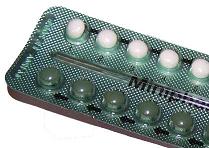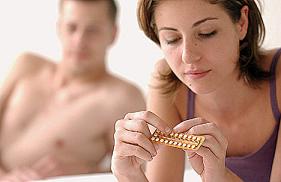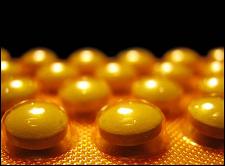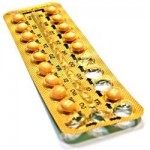How to Use Oral Contraceptive Pills
posted by: Rio Dianne
 Taking oral contraceptive pills (OCP) is one method of birth control since 1960 when Enovid has been approved to the Food and Drug Administration. The OCPs are taken to prevent pregnancy, but the idea of using birth control pills as abortion pills is not true as it can’t prevent conception that has already happened. The OCPs usually contain combination of estrogen and progesterone hormones which prevent pregnancy by disrupting the release of the luteinizing hormone and follicle stimulating hormone responsible for a pregnancy to likely happen.
Taking oral contraceptive pills (OCP) is one method of birth control since 1960 when Enovid has been approved to the Food and Drug Administration. The OCPs are taken to prevent pregnancy, but the idea of using birth control pills as abortion pills is not true as it can’t prevent conception that has already happened. The OCPs usually contain combination of estrogen and progesterone hormones which prevent pregnancy by disrupting the release of the luteinizing hormone and follicle stimulating hormone responsible for a pregnancy to likely happen.
Most people think that oral contraceptive pills are just means of preventing pregnancy, but generally there are other benefits of oral contraceptive pills, too apart from unwanted contraception. These pills may also be used as medication for other reproductive health issues through the use of the hormonal preparations. Some of the non contraceptive benefits of OCPs include:
- Treatment of Acne – Since acne is associated with an increase of androgen production by the body, these pills aid in reducing the amount of androgen levels. The Yasmin birth control pills make a good option for the treatment of acne as it contains norgestimate and ethinyl estradiol.
- Hirsutism – This refers to excessive hair growth in a woman caused by polycystic ovarian syndrome (PCOS). OCPs are proven to improve atleast 50% cases of PCOS.
- Metrorrhagia – This condition makes women experience excessive uterine bleeding. Menstrual cycle can be regulated with the use of oral contraceptives.
- Iron deficiency Anemia which is caused by excessive bleeding
- Osteoporosis
- Ectopic pregnancy
- Premenstrual Syndrome
How to Use Oral Contraceptive Pills
Oral contraceptive pills must be taken at the same time each day preferably at the time of the evening meal. If you have the blister pack of 21 tablets, you should consume the first pill at the first day of your menstrual bleeding and consume the rest daily for three weeks followed by a week (7 days) of no pill. For the 28-pill packet, 21 pills are taken daily and then followed by 7 days of placebo pills. Your menstruation is expected sometime during the no pill days or the placebo week. You may also start taking it anytime you want provided you are not pregnant, and be sure to use condom for the next seven days to be safe.
Missed Tablets
If you missed one tablet, you have to take it as soon as remembered and ingest the tablet due for the day at the usual time. But if you missed two or more tablets subsequently, you have to take the most recent tablet as soon as remembered and dispose off all previous tablets missed. Be sure to use condoms for seven days to prevent pregnancy and then count the number of tablets left in the pill packet.
If seven or more tablets are left in the packet, you need to continue taking one tablet daily until all of the pills are consumed. Then proceed with the standard 7-days of no pill or placebo pill. However, if less than seven tablets are left in the pack, continue taking one tablet everyday until all the tablets are consumed and immediately start a new pack with or without menstruation.
Contraindications
The use of birth control pills is contraindicated to women who are pregnant. Also, oral contraceptives may affect coagulation and increase the risk of deep venous thrombosis as well as stroke an heart attack that’s why it is contraindicated for women who have cardiovascular diseases, family history of blood clot disorders, and smokers over age 35.
Side Effects
Some of the common side effects of the use of birth control pills include nausea, headache, dizziness, breast tenderness, irregular bleeding, changes in libido, and weight gain. Oftentimes, these side effects will drop after using pills for a few months.
Those are just some of the things you should know on how to use oral contraceptive pills. If you still have questions, you can always go to the Planned Parenthood or you OB-Gyn. Good luck!
You might also like
|
|
|
|
|
2 Responses
is it ok to start taking oral constraceptives 5days after your menstrual period?? is it still safe/?
What are the risks of prolonged use of birth control contraception ?



